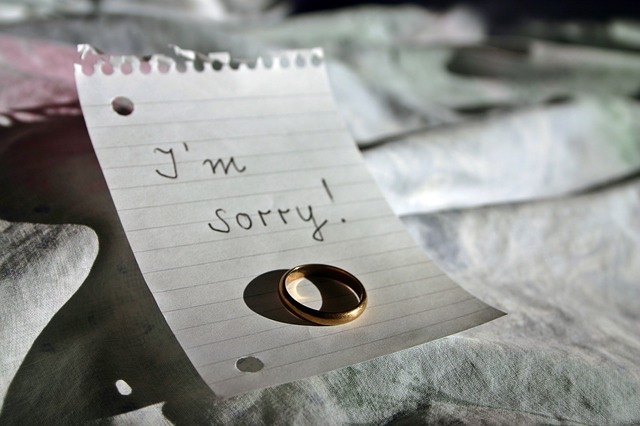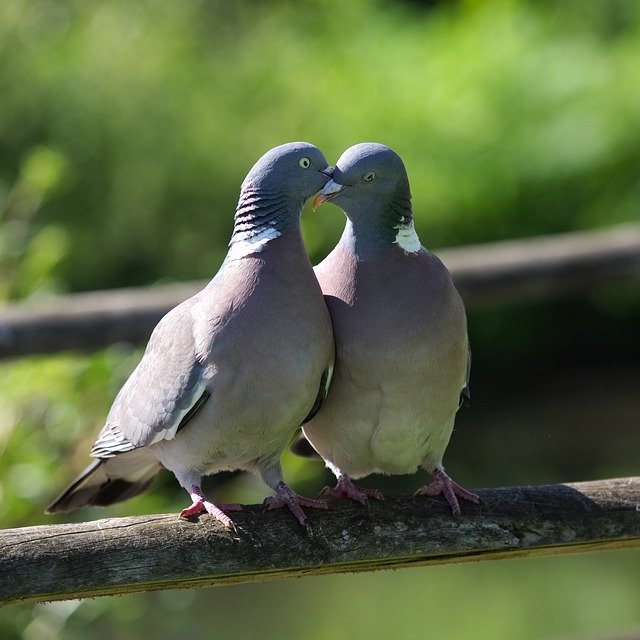Why Do Men Cheat?
"Welcome," Bill Bryson began in his book, A Short History of Nearly Everything "And congratulations. I am delighted you could make it. Getting here was not easy, I know. In fact I suspect it is a little tougher than you realise."
Not only have you been lucky enough to be attached since time immemorial to a favored evolutionary line, but you have also been extremely-make that miraculously-fortunate in your personal ancestry. Consider the fact that for 3.8 billion years, a period of time older than the Earth's mountains and rivers and oceans, every one of your forebears on both sides has been attractive enough to find a mate, healthy enough to reproduce, and sufficiently blessed by fate and circumstances to live long enough to do so. Not one of your pertinent ancestors was squashed, devoured, drowned, starved, stranded, stuck fast, untimely wounded, or otherwise deflected from its life's quest of delivering a tiny charge of genetic material to the right partner at the right moment in order to perpetuate the only possible sequence of hereditary combinations that could result-eventually, astoundingly, and all too briefly-in you.
What Bill Bryson was referring to above is life, evolution, natural selection and survival of the fittest. I have seen and heard so many women ask the question Why do men cheat? Unfortunately, the truth is that both men and women cheat (albeit not in equal proportion). But since it is the women that are asking the question, it is necessary to look at why men cheat if there is any reason at all.
Evolutionary Past
In the beginning, before over population was an issue, underpopulation and the likelihood of humans going extinct was a concern, therefore men naturally needed to continue their line. One way of answering the question is to imagine that there is an optimal number of sexual partners that will enable him achieve this continuity of his line.

This is important because the traits that would make a man want to have the optimal number of sexual partners are passed down to the offsprings. And according to natural selection and survival of the fittest, only those ones among these that are able to survive long enough to find a mating partner would have offsprings and so it continues for millions of years resulting to males who are more likely to cheat than women in our present generation.
Now, for both sexes, there were selection pressures pushing the average optimal number of sexual partners up, and selection pressures pushing it down. The final optimal number for each sex is the net result of these countervailing selection pressures operating over vast periods of time in our evolutionary past. We can expect that natural selection will have calibrated our sexual motivations and emotions so that, on average, members of each sex act as if they are deliberately aiming at their optimal number. They're not actually aiming at any such thing, of course; they're just acting on their drives and motivations. But we've got these pesky motivations today because people in the past who had them tended to have more babies than their neighbours.
In spite of these, there are selection pressures that push down the optimal number of sexual partners for men and these include: 1. Risk of contacting life-threatening sexual transmitted diseases. 2. The societal pressure requiring a man to invest in their offsprings. 3. Societal sanctions to punish infidelity.

These three work to reduce the likelihood that men would cheat. Societies that mandate men to invest time and money in all their offsprings offer great incentives for these men to limit their number if sexual partners. The same thing applies to societies that have provided serious punishment for cheaters. While hunan behaviour remain uniform throughout the world, these societal pressures offer people greater incentive for being faithful and they are smart enough to avoid life-threatening behaviours.
That's not the whole story, of course; there are also individual differences and situational differences that predict cheating. Here's a brief sampling: (1) High status men may cheat more because their status makes them more attractive to women and they therefore have more opportunity to cheat. (2) People are more likely to cheat if they are more attractive than their partners, and less likely to cheat if their partners are more attractive than them. (3) Modern western societies create evolutionarily-novel conditions that make cheating more likely. Alcohol is one factor that might increase cheating; long-distance relationships are another.
When men are asked why they cheat, their answers vary from, 'It doesn't mean anything, I still love my wife', 'It is just fun', 'It was served to me on a platter of gold', and so on. While these may be true, it does not really answer the question as to why men cheat. The only reasonable answers are found in our evolutionary past but even that is not enough until we admit that both men and women cheat and most men do not cheat.
So, how do I ensure or guarantee that my partner won't cheat on me?
Well, you can't. There is no guarantee but to predict someone's future, you must look at their past. Someone who cheated in the past would likely do so again in the future. So if you do not want to end up with a cheat, do not condone it even for once and the chances are that you'd end up with a faithful partner.
All images were obtained from pixabay
With love and gratitude,
Your boy Kels
@churchboy
Thank you for stopping by


Very interesting topic of choice.
I think personally that monogamy is the only way forward. If you commit then you should commit!
Alas it is not always this way. My ideology is not shared by a huge percentage of people.
I would say two things: Some people say they "cheat" because they fall out of love with their current partner and into love with someone else. Which does not excuse or condone their behaviour. They should be big enough to end the first relationship first. But again - folk don't always do the right thing.
Secondly - do you think Social media has made it more difficult to cheat? or do you think it just magnifies the situation?
great post @churchboy
Thank you, brother. Cheating is easy. In this age and time, most folks just do what's easy. My personal experience is that social media makes cheating a lot more easy than it used to be. A very big part of cheating is the emotional component and I think that social media has made this part easy by connecting people across distances. This is supposed to help long distance partners connect better but what it does is to give them the feeling that they are connected whereas a whole lot of drama goes on in the background.
However, I must observe that it is possible that in some cultures, social media has helped reduce cheating but where I'm from, most people are not very open and public about their relationships. This reticence serves to protect their multiple partners from each other. The stories I read on a daily basis are crazy. I often tell myself that they are stories made up for entertainment but they aren't. You can check this or this to see for yourself. I'm also here if you have the time.
Thank you for dropping a comment. Much appreciated.
really nice
ভাল